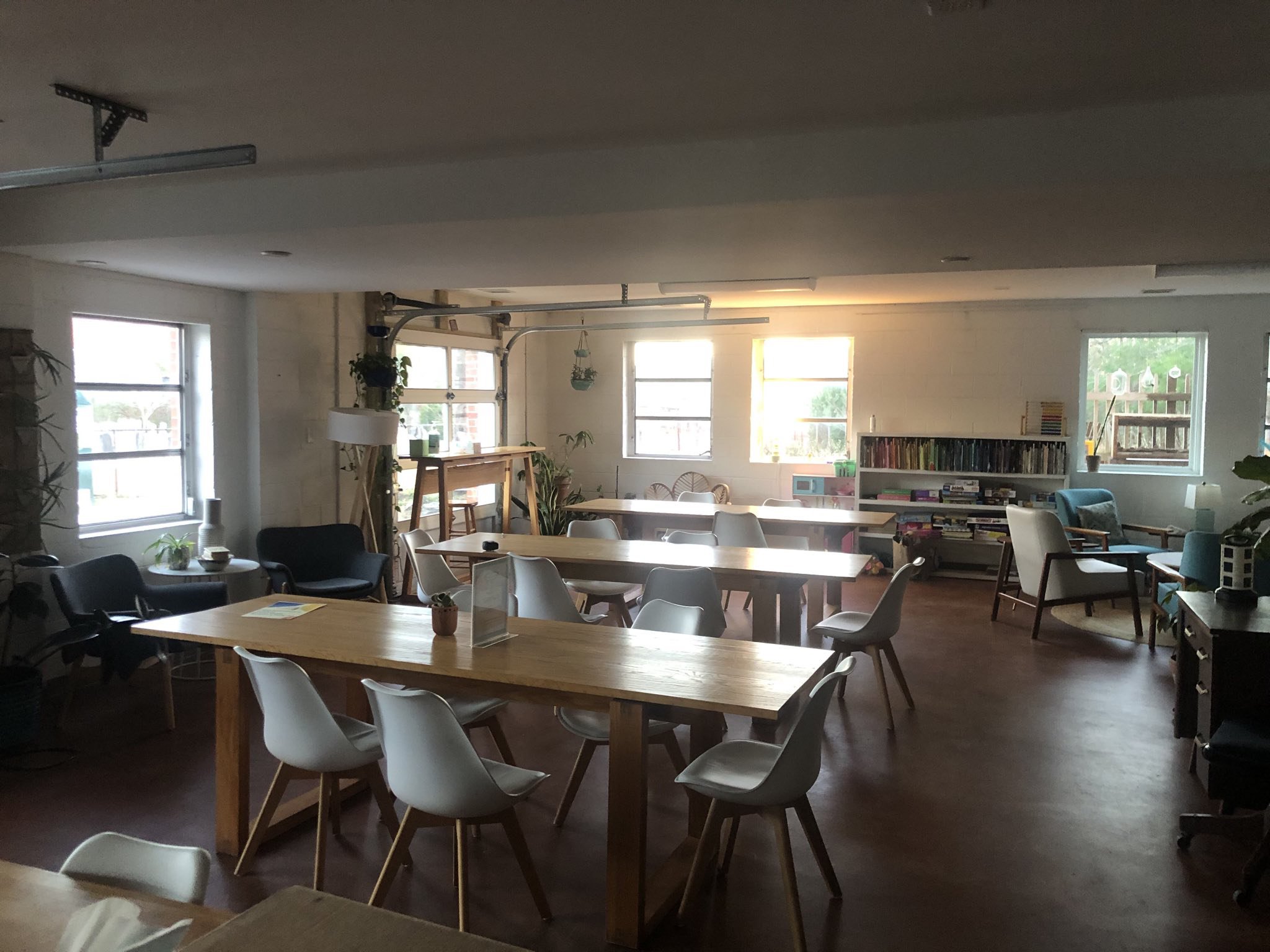Haw Creek Commons: Community Gathering and Small Business Amid COVID-19
Watson Jones | December 1, 2022
The Haw Creek Commons (HCC) — situated on the outskirts of Asheville, ten minutes west of Warren Wilson College (WWC) — is an “experiment in community building” with a complex identity.
“This space is not owned or run by any one particular group,” Morgan Welch said, a leader and “communal storyteller” at HCC.
The Haw Creek Commons community space.
Created by the nonprofit Missional Wisdom Foundation, HCC is an experiment in “how business and community can be combined in a holistic and ethical way,” Welch said. The Foundation experiments with how churches can be reinvented into community-building spaces.
The project began in 2015 and construction finished in 2017. At its core, it's a work space and gathering area for local businesses and community members.
The space itself is light and pleasant — large windows, potted plants, low chairs and several long tables create a welcoming, relaxed feeling. There's a commercial kitchen too — one of the few available to small businesses in the Asheville area.
The regulars are mainly local entrepreneurs who come to use the workspace and the kitchen, cooking everything from dog treats to hot sauce and preparing food for wedding catering businesses and local food trucks.
The commercial kitchen was one of the first focuses of HCC when it opened in 2017.
“We try to offer that kitchen space on a very reasonable scale, because we want people, especially emerging entrepreneurs, to be able to afford it,” Welch said. “We ask $375 annual fee for the kitchen and then $25 per hour to use the kitchen space.”
One company that began in the HCC kitchen, a dog treat company called Botanical Bones, has since gone on to acquire its own building and is now operating independently. Welch said it’s gratifying to see small businesses like this one succeed and outgrow the HCC kitchen.
Until Sept. of 2022, the building that housed HCC was also home to the local Bethesda United Methodist church. The church leadership and members worked closely with HCC and fostered a unique relationship between the local religious community and small-business owners.
Welch, who worked closely with Bethesda leadership since her arrival as an intern in 2019, said that Bethesda closed due to a difficult period of post-pandemic financial uncertainty.
“Throughout the last year, financially, the church just was not at a point where it could sustain itself,” Welch said. “We were ‘in the black,’ which is good, but it was mostly from people making large sum donations at the end of the year to kind of save us instead of it being a sustained, predictable income each month.”
In addition to the financial difficulties posed by the pandemic, the church faced declining membership, seeing less familiar faces return post-pandemic.
The empty church space — which is currently being used for community events like dance classes and AA groups — will re-open in the future as an East Asheville branch of Central United Methodist Church.
“We're kind of taking the time to not have church so we can figure out what the identity of the new congregation will look like,” Welch said. “We're imagining that a lot of younger families will hopefully start coming and being involved. . . [We are] just taking the time to see what people want out of a worship service.”
In the meantime, HCC continues to work at building community through projects like their communal garden, which provides free fresh produce to anyone willing to help tend it. It’s maintained by volunteers — some of whom are Warren Wilson students — and the excess produce that is not brought home by volunteers is donated to Bounty and Soul or stored in HCC’s own free food pantry.


